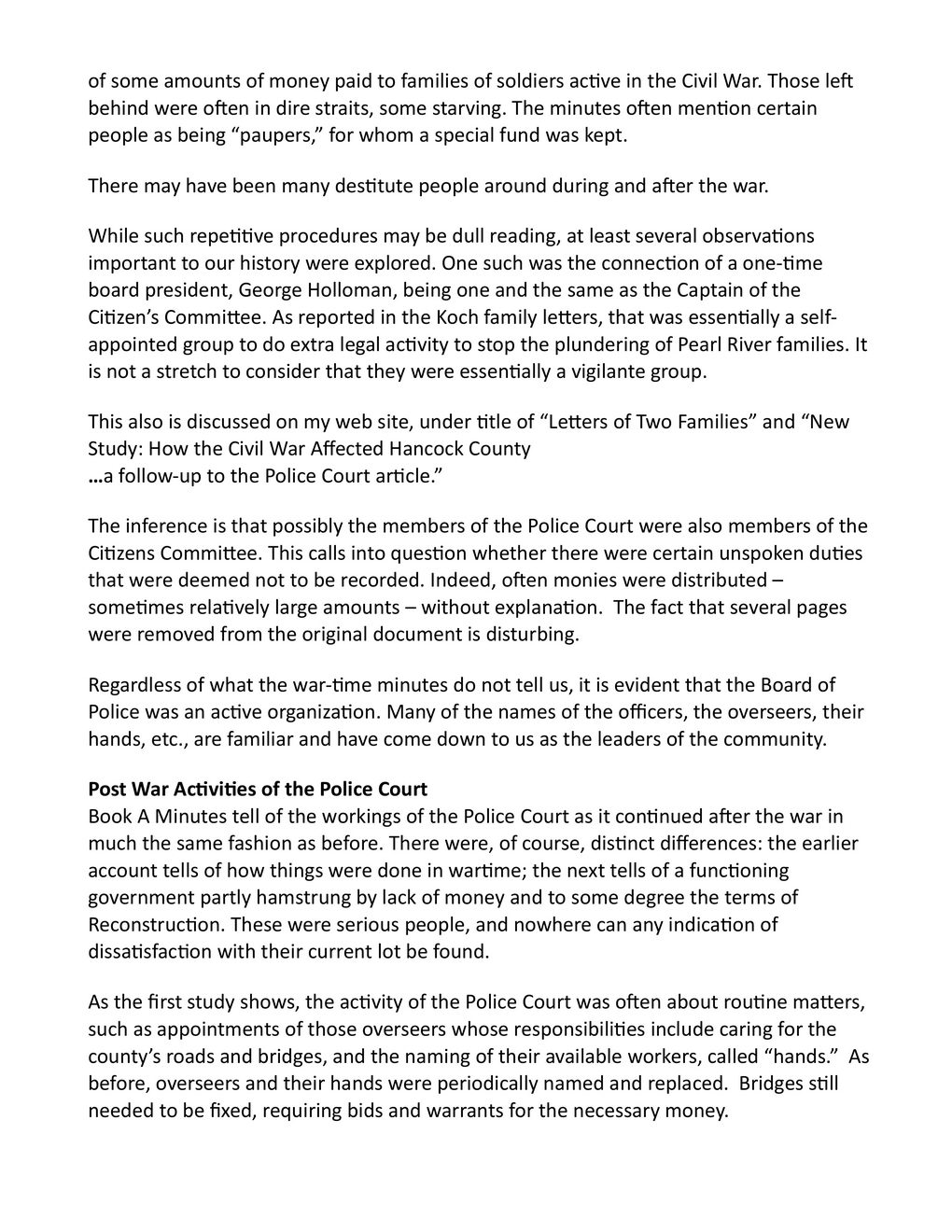This text was obtained via automated optical character recognition.
It has not been edited and may therefore contain several errors.
of some amounts of money paid to families of soldiers active in the Civil War. Those left behind were often in dire straits, some starving. The minutes often mention certain people as being "paupers," for whom a special fund was kept. There may have been many destitute people around during and after the war. While such repetitive procedures may be dull reading, at least several observations important to our history were explored. One such was the connection of a one-time board president, George Holloman, being one and the same as the Captain of the Citizen's Committee. As reported in the Koch family letters, that was essentially a self-appointed group to do extra legal activity to stop the plundering of Pearl River families. It is not a stretch to consider that they were essentially a vigilante group. This also is discussed on my web site, under title of "Letters of Two Families" and "New Study: How the Civil War Affected Hancock County ...a follow-up to the Police Court article." The inference is that possibly the members of the Police Court were also members of the Citizens Committee. This calls into question whether there were certain unspoken duties that were deemed not to be recorded. Indeed, often monies were distributed -sometimes relatively large amounts - without explanation. The fact that several pages were removed from the original document is disturbing. Regardless of what the war-time minutes do not tell us, it is evident that the Board of Police was an active organization. Many of the names of the officers, the overseers, their hands, etc., are familiar and have come down to us as the leaders of the community. Post War Activities of the Police Court Book A Minutes tell of the workings of the Police Court as it continued after the war in much the same fashion as before. There were, of course, distinct differences: the earlier account tells of how things were done in wartime; the next tells of a functioning government partly hamstrung by lack of money and to some degree the terms of Reconstruction. These were serious people, and nowhere can any indication of dissatisfaction with their current lot be found. As the first study shows, the activity of the Police Court was often about routine matters, such as appointments of those overseers whose responsibilities include caring for the county's roads and bridges, and the naming of their available workers, called "hands." As before, overseers and their hands were periodically named and replaced. Bridges still needed to be fixed, requiring bids and warrants for the necessary money.

Police Court 1863-1866 Russell Guerin - Police Court during Reconstruction (2)